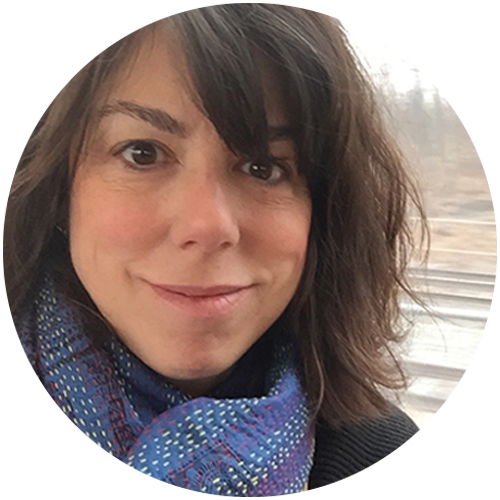On Emerging Female Sexuality & Power
The boy asked my father if he could take me out that night.
The boy had shiny dark hair. Naturally tan skin. His teeth gleamed. He would have been the most popular boy in my hometown of Maplewood, New Jersey. Here, he was just another Italian.
We were at a café in Rome with tables so small my parents, sister and I clustered around the table, our pasta plates clinking. The boy and my father conversed in Italian. I didn’t understand a word. Yet the way the boy looked at me and gestured, I knew what was being asked.
For the first time in my life I felt power.
Yes, of course(!), this was a wholly suburban American girl experience. A cliché. And it’s one that no rom com coming-of-age movie is without. But this is me, so the next scene—the romantic one of the laughing girl on the back of a beautiful boy’s moped winding through the ancient streets of Rome? That never happened.
My father said no.
I walked home with my family to our hotel room. It was a small room and the walls were wallpapered with flowers that framed the window overlooking our narrow street. I sat by that window and steeped in my emerging sexuality.
It was the summer before my junior year of high school. I had already dated and “been to third base,” but it was a stumbling series of experiences that swung from shameful to thrilling. I was both loud and quiet in those days, never pursuing the cute boy, never seeking out conversation or asking about homework, but lingering, and hoping. I timed my walks by boys’ lockers and yearned. Usually what happened was that I became paired with the pal of the cute boy who was going out with my friend. And for much of the time, I would rather have been reading a book.
Before I left on my trip—which was not a common occurrence in our middle-class town—I promised to send postcards to my friends. Three weeks is a long time to a fifteen-year-old. My friends could suddenly become the most popular girls in school and desert me. The rules of high school could be rewritten and I would be lost. My world could end.
I took the community phone book—the little one my friends and I scoured for boys’ phone numbers to crank call them—and I wrote my friends’ addresses in the back of my journal. And in one fantastical moment I still cannot fathom, I wrote down the addresses of the boys I liked—there were three.
Writing to these boys while I was away wasn’t a plan but a fantasy. Just like riding that moped through Rome. I wrote in a diary every day back then and each entry was more fiction than biography. It was what I wanted my life to be.
In that café, I felt power.
I grew taller. I noticed men—both teenagers and men who should not be looking at me looking at me. To tell you I liked it wouldn’t be precise. I was uncomfortable, but I fed off of their stares.
My rounded posture to make less of my large chest, straightened. I walked ahead of my parents and sister, or let myself fall behind them, pretending to be a solo traveler on an adventure.
In museums, pondering classical art, my father often stood next to me, his hand resting on the back of my neck. He would point out details I didn’t see or regale me with the history of the era. Affection, surely, for he and my mother had climbed those American rungs of success and taken their children to Europe! Yet that hand was a yoke and I strained against it. I met the eyes of strangers. I smiled more. My father and I fought more. All the lines of my life grew edgier, more vivid.
In Positano, my mother and I went shopping at a tiny shop near the beach. The shopkeeper motioned for me to try on a coral shirt dress that hung well above my knee. The fabric was sheer and cotton. The jewel neck opened to a vee lined with pearlescent buttons. It was stunning. Behind a wicker partition, I slipped the dress over my head and walked toward my mother’s smiling face. The shopkeeper spoke in broken English and wrapped a turquoise scarf around my hips. She tied an exquisite knot and gestured, voila!
I looked in the mirror and saw the woman I wanted to be.
I wore the coral dress to dinner that very night. My mother tied the sash, mimicking the shopkeeper’s knot. I wanted to eat alone and talk to strangers who would surely befriend me. I ate with my parents and my sister. No one befriended me.
But that night in the hotel, I fanned through the postcards I bought that day. I had kept to my promise, writing to my friends in the teeniest of print making sure to fit in the details of the day.
l chose a postcard of the Positano coast with all the technicolored buildings nestled into the hillside. “Hope you’re having a good summer! – Alex.”
I drafted a slightly different version to each of the three boys. I wrote in cursive—a craft I was proud of—I struggled so my cursive didn’t look lefthanded, but slanted to the right as we were taught. I rounded my loops just bubbly enough to be open and inviting but not vapidly so. I chose pretty stamps. I licked them and placed them squarely on each card. I slipped them into a postbox during one of our outings.
Back home in Maplewood, the first day of my junior year, I tried on the coral dress with the blue sash. In the mirror, I turned this way and that. The knot of the sash was bulky. I couldn’t tie it as the shopkeeper had. The dress was short for the early 80s. I looked too different from what everyone would be wearing. I wore something else.
Still, I walked into first period band my head high—two of the boys I had sent postcards to would be there. I was aware of a shift inside me. I met boys’ eyes and smiled. It was a beginning.
I kept that coral dress and turquoise sash for a long time; they even came to college with me. I don’t think I ever wore the dress in public save that one night. I would don it often though, struggling to replicate how the woman tied the sash. Studying myself in the mirror. Hoping one day I would have the courage to be the person I wanted to be.
#
Because of the era we are living in—the collective outrage women are rightfully expressing, I include the following thought process I struggled with as I wrote this:
My inner feminist: This is appalling! Your self-worth was tied to a man’s gaze? Are you fucking kidding me? How weak are you? Just think about how that perpetuates the patriarchy and enables men to justify leering and catcalling at women. Shame on you.
My inner teenager: Shut up, he likes me.
My 51-year-old self: And so yet another contradicting (hypocritical) value appears on the horizon of my life. Lean in, that’s where the story is.




